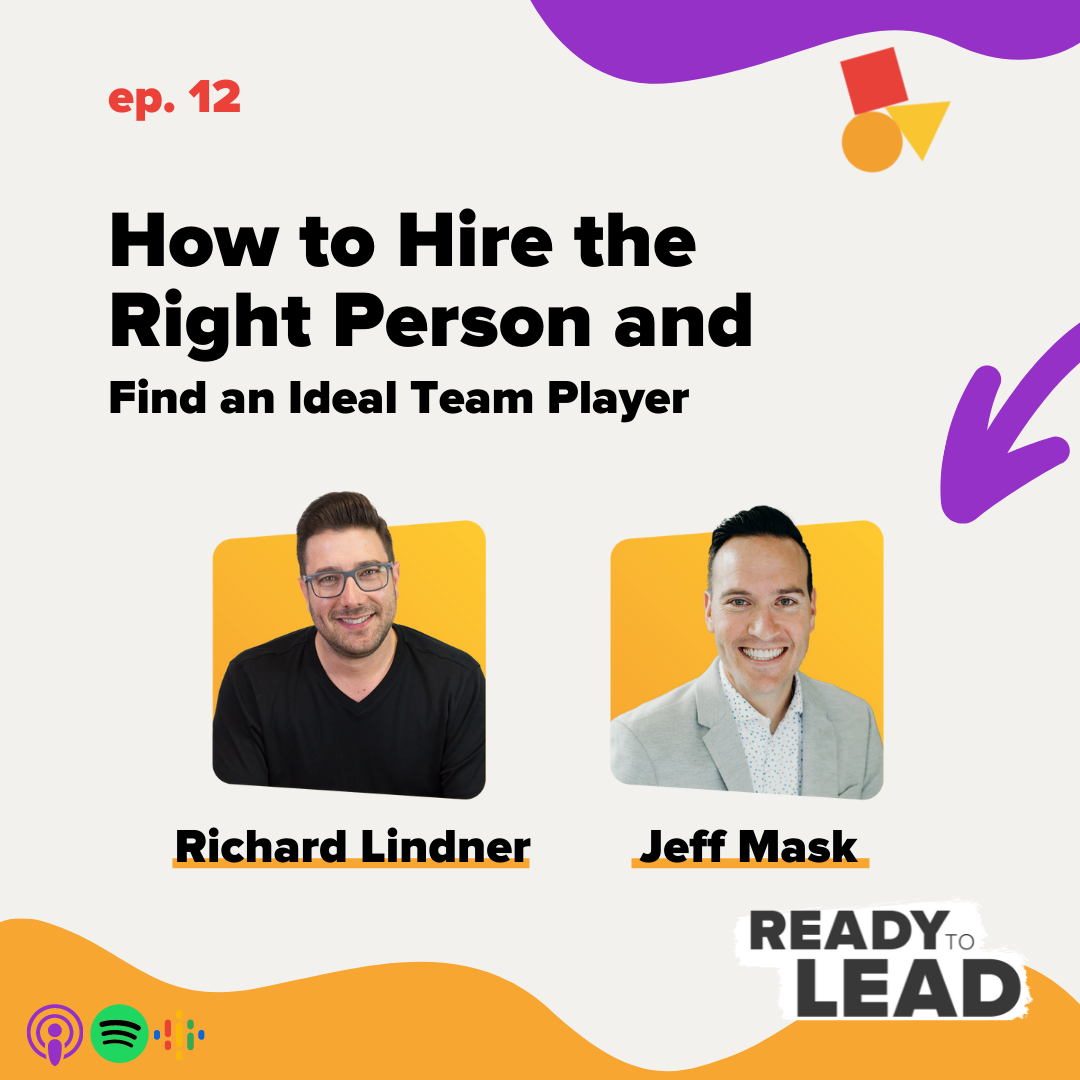Once you know when you need to hire, the next question is who do you need to hire?
In this micro-episode, host Jeff Mask walks through a simple, but effective, model you can use to determine whether or not a person is a good fit for your company. The bottom line? You can do all the research, all the due diligence, and still mis-hire. Then you’ve got someone who doesn’t fit your team or culture, and you have to fire them.
Listen in as Jeff takes a dive deep down into some frameworks that he’s loved over the years that are super powerful and help you know exactly who to hire for the long term.
Don’t Hire Too Quickly
Once upon a time, Jeff was tasked with growing a brand new team from scratch. He had to go from zero to six people in 4-6 weeks. He let the urgency get to him. “I’ve got to hire people, get things going, meet this massive revenue target, and make sure we’re being wise stewards of resources,” he told himself. He quickly looked at resumes and skill sets and figured out job descriptions and did all the right things. Or so he thought.
He realized later that he had let the urgency to hire by a certain time trump the necessity of hiring the right people for the long term. His short-term focus translated into a lot of turnover, wasted effort and time, and frustration for people. Ultimately, they ended up keeping only two of the six hires long term. He knew he could have done better.
If you’ve hired too quickly or don’t have a hiring process, hopefully you can learn from his mistakes. Years later, he stumbled across an awesome book by Patrick Lencioni called The Ideal Team Player. It’s full of powerful systems and frameworks, and he wishes he’d had it sooner.
How to Hire The Ideal Team Player
Jeff loves the simplicity of Lencioni’s models and how, when you use them and apply them, they actually work. The first one is called The Ideal Team Player (link at the end), and you ask three basic questions about a potential hire.
- Is the person humble?
- Is the person hungry?
- Is the person smart?
Are they humble? To borrow a quote from C.S. Lewis, humble isn’t thinking less of yourself; it’s thinking of yourself less. Is this person coachable? Can they listen? Are they looking out for others, not just for themselves?
Are they hungry? Are they driven, self-motivated? Are they self-aware? Can they take that and know when to take the initiative? Are they growing? Are they devouring books and wanting to learn more? That’s a great indicator.
Are they smart? Not intellectually smart—although that’s important—but people smart. Do they have emotional intelligence? Do they understand how to work well with others? Will they bring cohesion to your team?
You Need All Three: Humble, Hungry, Smart
Right smack dab in the center of humble, hungry, and smart is that ideal person you want to hire. This begs the question: what if someone has just one or two of the qualities and not all three? Is that good enough?
In a word, no. If someone is just humble, but not hungry or smart, they’re a doormat, a pleaser. They don’t stand up for things. If someone is just hungry, ambitious, but not humble or people smart, they’re just a bulldozer. And, if they’re people smart, but not humble or hungry, they’re just a charmer.
Lencioni has names for people who embody two of the characteristics but are missing the third. What if you’re humble and hungry? You’re an accidental mess maker. What if you’re humble and people smart? You’re a loveable slacker. What if you’re hungry and people smart? You’re a skillful politician.
You need to be really careful of the counterfeits. You have to have all three. Two doesn’t cut it. When you find that ideal person, you can hand them any challenge or opportunity, and they can get it done—and take feedback well.
Action Steps
If Jeff had known about this genius model back when he hired that first team, he would have found the right people instead of pushing his timeline and settling for less than what was best. Here are steps you can take right away:
- Check out The Ideal Team Player model PDF.
- Assess yourself first. Where do you stand? Are you an Ideal Team Player?
- Check out the “How Do I Ask Great Interview Questions?” PDF.
- Use these frameworks in your hiring process.
Definitely have a framework as you hire. Make sure you have a great purpose, and implement advice from the previous episode on How to Know When to Hire. Once the when is clear, you can develop the who based on this awesome model. Implement something TODAY. Don’t just listen and move on. Write something down and take action.
Richard and Jeff want to hear from YOU. What worked when you used this model and what didn’t? Was there anything that wasn’t clear and you’d like more explanation/clarity? What questions do you have about hiring? Do you have any positive tips or stories about hiring to share? Email them here with your thoughts/questions: feedback@readytolead.com
RESOURCES:
- The Ideal Team Player (awesome book by Patrick Lencioni)
OTHER SHOWS YOU MIGHT ENJOY:
- Business Lunch with Roland Frasier and Ryan Deiss
- Perpetual Traffic with Ralph Burns and Kasim Aslam
- DigitalMarketer Podcast


